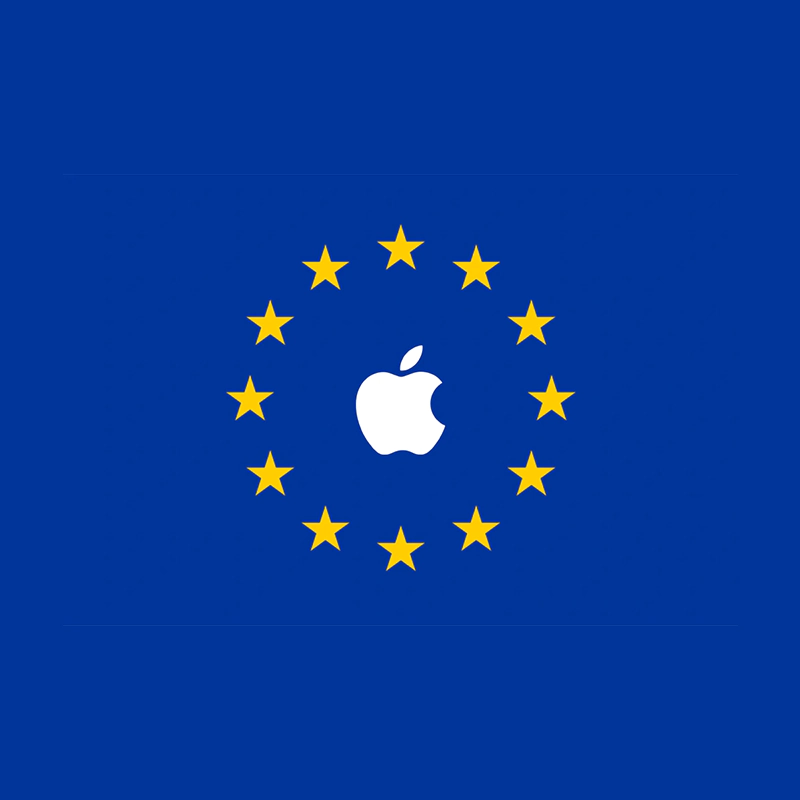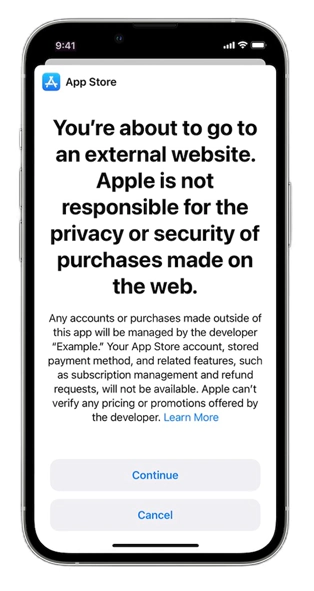
Europe is where some of the world's most powerful nations reside, and also a place for some of the strictest rules.
One of which, is the Digital Markets Act (DMA), which is an EU regulation that aims at fostering fairer and more competitive digital markets. In particular, it establishes clearly defined objective criteria to identify "gatekeepers" in the digital sector. In particular, there are more than 20 services that happened to only be controlled by six "gatekeeper" companies.
One of which, is Apple.
Because not complying to the DMA can be significant, Apple has been making big changes to how it runs its platforms in the EU.
After announcing that it would allow users to download iOS apps from third-party app stores, Apple made another huge change.
Apple calls it the Web Distribution.
Read: Apple Announces Changes To IOS, Safari, And App Store To European Union: Not Its Idea

What it does, according to Apple in a separate web page, is allowing app developers distribute their iOS apps to iPhone and iPad users directly through the developers' own websites.
This allows users to download the apps, without having to download them through conventional means, like through the App Store.
To make this happen, developers are allowed to link out to external web pages within their apps, which means that they follow their own rules, and not follow Apple's guidelines or templates for discounts, promotions, and other deals.
Developers who choose to set up an "alternative marketplace are also allowed to distribute their own apps through those third-party platforms.
Apple announced these new EU policy additions in an update on Tuesday titled "More options for apps distributed in the European Union."
"To reflect the DMA’s changes, users in the EU can install apps from alternative app marketplaces in iOS 17.4 and later. Users will be able to download an alternative marketplace app from the marketplace developer’s website," Apple said on its website.
Due to the DMA, Apple could no longer monopolize app distribution on iOS through the App Store.
By allowing third-party app stores to distribute iOS apps for users in Europe, and allowing third-party websites to directly provide download links to iOS apps, Apple is making a huge change to how it conducts its business.
The changes could dent the high profit margins and steady stream of revenue that Apple has come to rely on from its App store, where it charges developers fees of up to 30%.
But Apple is not going to just give in to this.
While Apple is required to follow DMA when conducting business in Europe, developers of iOS apps are still required to follow Apple's guidelines.

To acquire this Web Distribution privilege, app developers must be enrolled in the Apple Developer Program. In addition, Apple said that those developers must be in "good standing in the Apple Developer Program for two continuous years or more, and have an app that had more than one million first annual installs on iOS in the EU in the prior calendar year."
Apple is also requiring those developers to take on responsibilities typically reserved for app distributors, such as handling government requests and keeping in touch with Apple regarding potential issues such as fraudulent or illegal behavior related to the apps.
What's more, Apple has also introduced a "core technology fee" of €0.50 for each first annual install over one million in the past 12 months, for developers who opt not to use Apple's App Store or payment system.
What this means, for the first time, developers can owe Apple money, even when they're not making any subscription sales.
In other words, while Apple is loosening up, there are more stringent requirements for developers who wish to distribute their apps through non-conventional ways.
Developers must still meet terms and conditions set by Apple and be authorized developers.